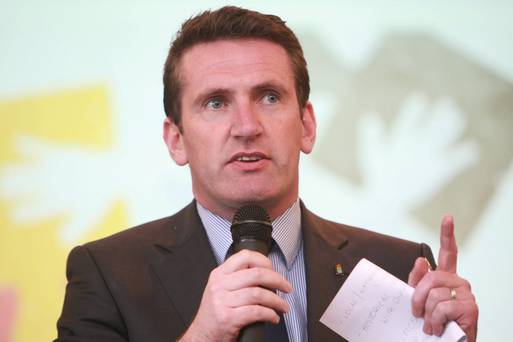The issue of income-contingent graduate loans has reared its ugly head again as the Oireachtas Education and Skills Committee assesses how best to deal with the recommendations of the Cassells report on the future funding of further education. Before the summer, the Labour Party tabled a motion in the Seanad, urging the government to rule out a loan scheme as part of its overall objective. However, our motion was defeated by the combined votes of the Fine Gael and Fianna Fáil senators.
It would appear that the aspiration towards free access to third-level education has never had the same level of public support as the moves to make primary and secondary education free in the 1940s and 1960s. However, it is difficult to determine whether the public debate is dominated by vested interests, or if the Irish people genuinely feel that it doesn’t represent value for money. Certainly my own party has a chequered past in this regard: abolishing college fees in the 1990s, only to roll back on commitments not to increase registration fees during our last period in government.
It would appear that the aspiration towards free access to third-level education has never had the same level of public support as the moves to make primary and secondary education free in the 1940s and 1960s
Ironically, the very same arguments that are made now in opposition to “free fees” for third-level education are identical to those made in the 1940s regarding primary education, and were also made 50 years ago when Donagh O’Malley moved to provide free secondary education. Why is it that when we aspire to create an education system free for all that it creates such debate? Surely it is worthy of us, as a Republic, to want to treat education as a precious commodity that is funded through progressive taxation, as it is at the point of entry?
The basic principle behind an income-contingent loan scheme is that well-paid graduates should repay their fees over a period of years. It has been introduced in countries such as the UK and Australia, and the results have been alarming. The rate of non-payment is high, the impact on working families is disproportionate because of accumulated interest rates, and the arts and humanities have suffered as a result. However, the main argument that must be levelled against such a scheme, is that it institutionalises the concept of education as being an advantage to the individual, and not as a public good.
Surely it is worthy of us, as a Republic, to want to treat education as a precious commodity that is funded through progressive taxation, as it is at the point of entry?
Society in general benefits from a well-educated workforce. We need well-educated teachers, doctors, nurses and civil servants. Education as a public good and its benefit to the collective is undermined by the monetisation of learning. If an income contingent-loan scheme makes sense for graduates, then why would we not insist that students also pay back the €8,000 per year it cost to send them to primary school, and the €12,000 it cost to send them to secondary school?
In 2011, Fine Gael’s manifesto committed to the introduction of a student loan scheme, which was successfully resisted by Labour. We will be supporting the student march on October 4th and we will continue to use every opportunity we have to realise the goal of free education for all, at all levels.
Aodhán Ó Ríordáin is a senator and is the education spokesperson for the Labour Party.







